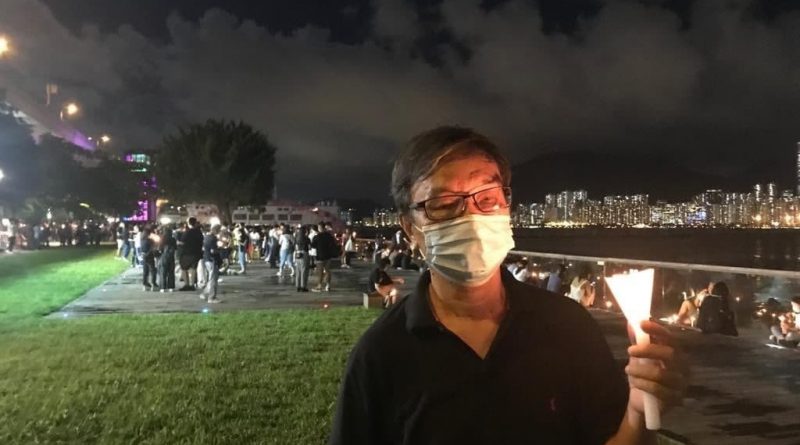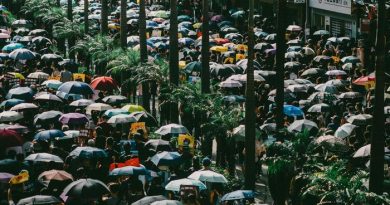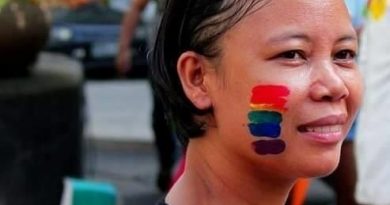Interview with Mr. Apo Reong, the former director of the Asia Monitor Resource Center (AMRC)
In this issue, Mr. Apo Reong, who has lived his entire life as a worker and a social activist, talks about the recent situation in Hong Kong since the enforcement of the National Security Law. Mr. Apo has long served the Asia Monitor Resource Center (AMRC), an international organization established in Hong Kong in 1976 with the aims of the improvement of working environment and the development of labor movement.
(1) As a person who has lived entire life as a labor and a social activist, what do you think of Hong Kong’s umbrella protests and people’s democratization?
For a long time, HK people have been looked upon as ‘economic animals’ and not a politically minded body. They tend to tolerate political injustice as long as they are given a bowl to rice to eat. All they want is to go work every day and to make a living but to stay away from politics. The two recent cases (1994 and 2019) have demonstrated against this viewpoint.
Since handover, the cry for direct democracy and basic freedoms has become the main theme of the people’s movement. Time and again, the Chinese and the HK governments do not fulfil their promises as enshrined under the Basic Law. They rather adopt authoritative measures to silence the critics and their supporters by police force and other measures such as manipulating the coercive laws.
The young generation has a stronger identity with HK. They are more willing to take up the fight for justice.
The rule of law, basic human rights are much treasured in HK and HK people will resist when they see how these basic values are being eroded or threatened.
Of course, the other major factors which cannot be ignored are the growing gap between the rich and poor, the deepening of the housing problems and the lack of class mobility for the young generation.
(2) Hong Kong’s people demonstration shows the world that there is a lack of trust between the state and its citizens. What do you think is the reason why is citizens’ resistance exceptionally strong regardless of the generation?
Repeatedly the HK government delayed the direct election process of the Legislative Council and the opening up of the decision-making process. They would rather adopt the colonial approach by consultation and cooptation. The whole regime is dominantly by the businesspeople, the pro-Beijing elements and the elites who are labeled as ‘patriots’ in the eyes of the Chinese government. There is no significant growth of labour protection nor social protection for the HK people for more than two decades. It was the hard work of the labour movement to gain the minimum wage law passed. But the collective bargaining right was robbed off immediately after 1997. Instead the government poured billions of dollars in mega projects such as the high-speed train and the Lantau reclamation projects which benefit the property market. During the global financial crisis (2007) the government eagerly bailed out the banking and financial sector but not the workers. Lastly, the government unilaterally rushed to pass the unwelcome laws such as the National Security Bill (2003) and the Extradition Law (2019) which undermined freedoms and rights. Thus, the gap is widening but not narrowing as illustrated by numerous opinion polls.
(3) Until now, whenever I hear the news of the arrest of officials of the Confederation of Trade Unions (CTU), I feel that the conflict with the government authorities would not end. How did Hong Kong’s civil society come to you after the umbrella demonstration and the security law?
The new weapon frequently used by the HK government is the new National Security Law (NSL 2020). This has created a deterring and chilling effect among the civil society. Street confrontations have now subdued or are brutally suppressed, and the court cases are continuing. Unions and NGOs are being dissolved, dissents are leaving HK to seek asylum or being prosecuted, press censorship or self-censorship is occurring. This phenomenon looks like a bleak picture for the future of HK civil society. However, the civil society is learning fast and quick to adapt to this hostile situation. They look for examples such as S Korea, Poland, Taiwan how the civil society maintain its activities either in public or underground under an authoritarian regime. It is urgent to preserve the morale so as not to lose faith. Right now, they are having more closed circle discussion and assessment of the situation.
On the other hand, the HK civil society has gained a lot of strength from international networks and their support in the last two years. This has to be consolidated, broadened and deepened, not only at official channels but more importantly at the NGO levels.
(4) There was a conspiracy theory that the U.S. was behind Hong Kong’s protests as the American flag has been seen carried by protestors during demonstrations on different occasions. What do you think about this view, and what does it mean for the people in HK?
The HK government as well as the Chinese government holds that there are a lot of foreign interventions by hostile forces, particularly those from the USA through their agents. As a matter of fact, most the HK people would not oppose the unification with China but some of them, mostly young people, are for ‘independence’. It is rather awkward to see flying US and UK/colonial HK flags in demonstrations. The UK/colonial flags are nostalgia because some people miss the days of the colonial rule, which they think is much better than the present one. The US flags signify the misunderstanding and the myths that some people think that US would safeguard their freedoms as propagated by the US government. Furthermore, they want to make use of the ongoing trade war between the US and Chinese governments so as to put pressure on the authorities. The peaceful revolution strategy by the US agents cannot be ignored. We must be aware and keep a sober mind to assess the situation and plan accordingly so that the people’s movement would not be used by outsiders or insiders with their hidden agenda.
(5) Hong Kong is a multicultural (multi- ethnic); society in Asia. It has active solidarity organizations such as international migration, labor, youth, women, environment, peace, and inter-religious dialogues working to address some issues around Asia. Do you think Hong Kong’s situation last year affected these international solidarity offices?
For the past two years, the HK civil society such as the Civil Rights Front has always been upholding the principle of solidarity above racial, gender, religious factions. The united front approach wins the involvement of many migrant workers, Muslims in demonstrations. Political demands should be intertwined with social or economic demands.
(6) According to the Hong Kong’s report released on December 23, 2020, the poverty rate in 2019 was 21.4%, the highest in 11 years. The number of infected people has been increasing in Hong Kong’s since January. Do you think the persistence of Covid-19 infections will affect poverty rate? If so, how?
The poor is very much negatively affected by the COVID 19. The most recent Poverty Report indicates higher incidences of poor. The growing unemployment rate is threatening all walks of life, and the demand for unemployment benefits is a common call by the NGOs.
The government has not changed its old-fashioned mindset in social welfare. They still resist any reform in the welfare field and use the traditional means tested approach as the main social protection measures – social assistance. The elderly is left with no pension provision except the token old age allowance for the senior citizens of 70 years old. More and more workers are kicked out of the protective labor laws such as gig workers, freelance workers, and many other types of ‘flexible’ labor.

(7) Hong Kong media pointed out the increase in family conflicts and divorces called “covidivores” as one of the social phenomena and side effects of the prolonged pandemic. The reason was serious unemployment and the narrow residential space where family members were concentrated. What civil society arise when the increase in the family crisis increases socially?
Family conflicts as well as suicides do occur in these times. Not only they quarrel over financial matters but also over divided political opinions between the parents and their children (yellow vs blue camp). Now, to stay in HK or to immigrant is another hotspot debate among family members.
(8) In Korea, as unemployment increases, discrimination or verbal abuse done against immigrants living in Korea is increasing. Simultaneously, this phenomenon is also surprising to the degree of awareness of multiracial migrants in our society. Pandemic also restricts travel between Hong Kong and China. From a macro perspective, what do you think would be the effects of this disaster to Hong Kong’s current social phenomena?
One pro-Beijing law maker accused the gathering of migrant domestic workers for the spreading of the COVID 19 created an uproar. Some people refused the service of South Asian food delivery workers for the same reason. This has drawn the attention of worsening racial discrimination which the civil society must stand upfront to combat.
(9) Lastly, the eradication strategy used in Asia, Oceania (New Zealand, Australia) is different from the deterrent strategy in Europe and North America, but if the strategy of eradication in Asia continues to be unsuccessful, what do you think should we focus on? The problem of life and death comes too close.
It seems that the COVID 19 will not go away very soon, like SARS last time. Both strategies have its pros and cons. HK government is eager to follow China the steps taken by eradication strategy and that is why currently ‘ambush attack’ or ‘lock down’ in targeted neighborhood is taking place, but the result is not very satisfactory. People start to wonder it is a waste of resources or for a show only to please their superior boss – the Beijing government. The poor coordination of different HK government departments and the inconstant directives confuse the general public. It is hoped that the coming vaccination will be conducted in an orderly manner.
* Interviewed by Cha Mi-kyung
* Edited by Shin Seung-min




